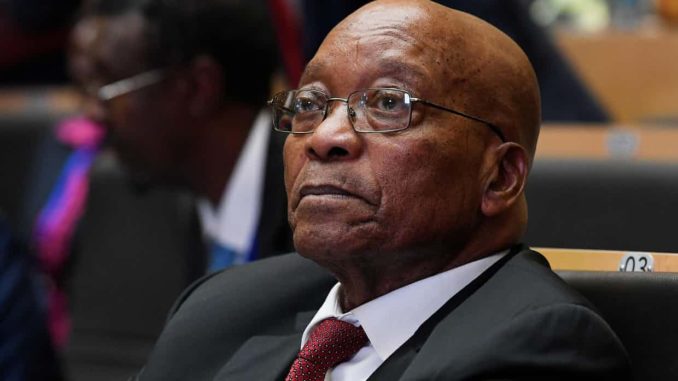
Jacob Zuma has defied an ultimatum from South Africa’s ruling party to resign within 48 hours, pitching the “Rainbow Nation” into an unprecedented political crisis.
The decision to tell Zuma to stand down or face being stripped of his office was taken at a specially convened emergency session of the highest decision-making body of the African National Congress near Pretoria, the administrative capital, late on Monday evening.
The meeting of the ANC’s national executive committee (NEC) was called after it became clear over the weekend that nearly five days of talks between Zuma, who has been South Africa’s president since 2009, and the deputy president, Cyril Ramaphosa, who took over the leadership of the ANC in December, had failed.
After nearly 10 hours of heated debate, Ramaphosa and a key ally of Zuma left the meeting shortly before midnight to drive to the president’s official residence to deliver an ultimatum: stand down or face “recall”, a technical term for the process of forcing an ANC official to leave their post.
However a “defiant” Zuma demanded a three month “notice period” before resigning, one ANC official briefed on the conversation said on condition of anonymity.
The ANC may now have to move a no-confidence motion in parliament against its own former leader. This has been described as a “nightmare option” for the party by commentators.
A press conference has been announced at ANC headquarters in Johannesburg at noon local time on Tuesday.
Zuma’s tumultuous nine years in power have been marred by economic decline and multiple charges of corruption that undermined the image and legitimacy of the party that led South Africans to freedom from apartheid in 1994.
However, the 75-year-old retains significant support inside the party and at a local level in many parts of South Africa. Ralph Mathekga, a political analyst and author, said: “Zuma is not just a person. He is a system. There are a whole lot of people whose politics fortunes are tied to his.
“We are watching a battle for the soul of the ANC. It’s a referendum on the true balance of power within the party.”
The opaque and secretive internal ANC debates and negotiations have much dark humour.
Zapiro, a well-known political cartoonist, drew Zuma and Ramaphosa as gunfighters under a banner bearing the legend “High Noon”, corrected to “High Noonish” then “Low Noon” and finally “Whenever”.
Ramaphosa won a bitterly fought internal election to become party president and would have automatically replaced Zuma as South African president, in accordance with the constitution, on his resignation.
If Zuma is ousted by a no-confidence vote, the speaker of parliament will serve as an interim president until elected representatives chose a new head of state. The ANC has a majority in parliament and it is almost certain Ramaphosa would be selected.
Supporters of the former trade union leader, who is seen as the standard bearer of the ANC’s reformist wing, have pushed for Zuma to be sidelined as quickly as possible to allow the party to regroup before campaigning starts for elections in 2019.
Richard Calland, an expert in South African politics at the University of Cape Town, said the departure of Zuma from office would give Ramaphosa “the chance to rebuild government and the party at the same time”.
If he does decide to resign, Zuma will write a letter to the speaker of parliament. The former ANC security chief and liberation activist is also facing a no-confidence motion in parliament set for 22 February
The opposition leader, Mmusi Maimane, who heads the Democratic Alliance party, said opposition parties would back the motion and demand early elections. “Anyone from the ANC that wants to lead this country must get their mandate from the people of South Africa,” he said.
END

Be the first to comment